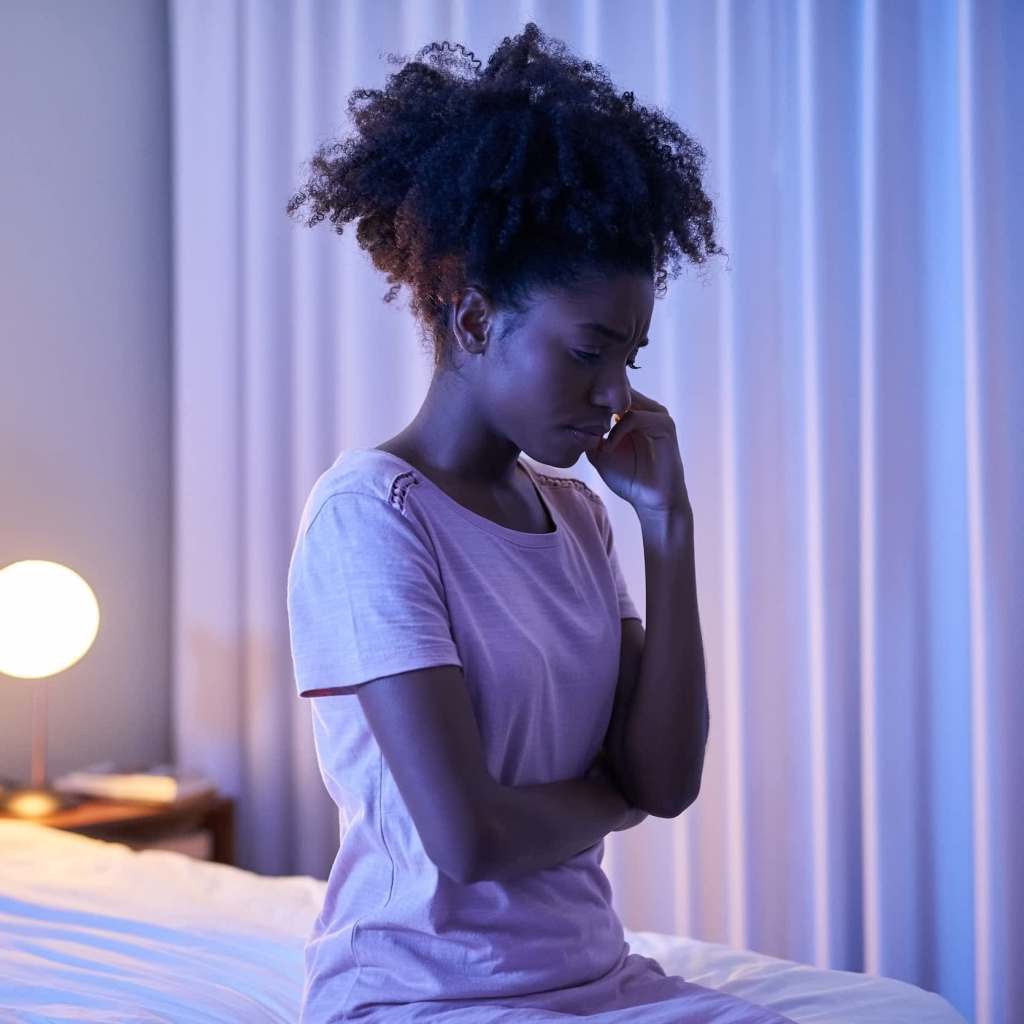This is how 2 a.m. has looked for me for the past few weeks: The entire house is quiet, but I’ve been awake in bed for nearly two hours, staring at the ceiling, reading the news (big mistake!), and ruminating over the ticking clock and all of my current fears – hence why I’m nowhere close to falling back asleep.
Eventually – sometimes after a trip to the kitchen for some comfort food (ice cream always) or a glass of milk – my tension headache eases up, the sleepiness finally kicks in, and I’m headed toward a snooze.
This isn’t by any means my first time experiencing difficulty falling back to sleep after a bout of anxiety, but my curiosity as to why it’s so hard to fall asleep after dealing with stress has never gone away.
Dr. Michael J. Breus, PhD – a clinical psychologist, diplomate of the American Board of Sleep Medicine, and fellow of the American Academy of Sleep Medicine – helped answer that for me.
For starters, Dr. Breus says it’s unlikely that anxiety is what’s to blame for actually waking you up in the middle of the night.
“Anxiety in and of itself cannot wake you up,” he says. “Sleep is a physical process, which can be influenced by anxiety while awake but not while asleep.”
But anxiety can certainly prevent you from falling asleep. Oftentimes, and in my situation, that anxiety is brought on by reading the news and thinking about my fears and everything that stresses me out.
“This physiologically will increase cortisol, which makes it very tough to fall back asleep,” he explains.
Cortisol is also one of the factors preventing you from falling asleep when you initially crawl into bed.
As an article written by Dr. Breus explains, cortisol plays an important role in regulating sleep, but when cortisol is thrown out of balance (which is often the case with chronic stress) it can contribute to sleep issues.
It’s important to remember that sleep and anxiety can exist in a less-than-ideal cycle, too.
For example, you wake up and look at the clock. Then, perhaps you become stressed about the time and how you have to wake up in a few short hours and then you’re stressed about falling asleep. What follows, as Dr. Breus explains, is a “physical response of increased autonomic arousal, which will actually spike cortisol, which will prevent the sleep process from starting.”
Resisting the urge to read stats in the middle of the night is sure to help me, but Dr. Breus also suggests conquering this common issue by utilizing relaxation techniques, like breathing exercises and guided imagery.
Reaching out to a doctor for tips on hindered sleep is also a great idea. Your medical professional can help you uncover the cause and suggest specific solutions to suit your needs and help you hit the hay.
Click here for more health and wellness stories, tips, and news.
Related: Tossing and Turning at Night? These 5 Things Could Be Messing With Your Sleep

